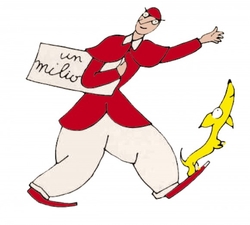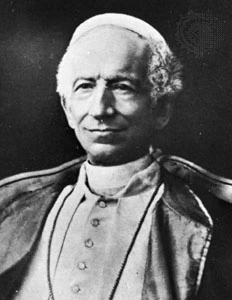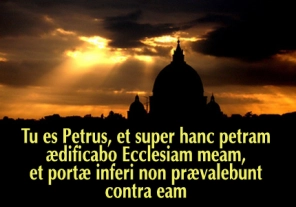Daily Archives: October 26, 2014
Comical Quisling.
To hear today at Mass the pathetic message of Cardinal Vincent “Quisling” Nichols assuring us that at the Synod Francis has not been defeated by the Bishops reminded one strongly of Comical Ali (I am informed in the US he is known as Baghdad Bob).
It was surreal. It was like being told by Dr Goebbels that the battle for Stalingrad had not been lost, as the newspapers want you to believe.
Nice try, Your Disgrace.
We will stay by the facts, though.
Mundabor
Chemotherapy
Whoever has ever read the Gospel must immediately notice how strong Jesus’ words and acts are. Jesus’ words must appear particularly strong to anyone grown up in the effeminate, sensitivity-obsessed Anglo-Saxon society, where everyone is so afraid of even pronouncing the word “sinner”, lest anyone were to be oh so gravely offended in his delicate psyche whilst, say, sleeping with the husband of another woman.
This must stop.
Jesus wasn’t very worried about being blunt. He mentions hell with a frequency and harshness that would be shocking to every Presbyterian, if he were to ever read the Gospel. Jesus whips, uses physical violence against the moneylenders in the Temple. He uses Sodom and Gomorrah as the very epitome of depravity and abomination. In short, he does not “do” political correctness in the least. Nor does St. John the Baptist. Or Paul. Or Peter. Or anyone else.
Why is that? Because the truth must be said whole, and only the truth said whole helps people to change.
It is, therefore, entirely counterproductive – nay: it is dangerous for the soul of all those involved – to try to find expressions which still conveys the idea of sin, but bring the message in a “gentler” way. If the sin is shocking, the description of it must also be. If the sin is grave, the description of the sin must also convey its gravity. Neither Jesus, nor Saint Paul, nor any of the other great Saint I know ever made any effort to find a word they would use instead of, say, “adulterer”. They used the word “adulterer” because it was, and it is, the word that describes the fact.
It is not in the interest of the adulterer that his sin be called in a way that still reminds him that he is doing something wrong, but says it to him in a gentler way. The adulterer isn’t a retarded child, who must be treated with very special care. He knows what he is doing, and he must be told very clearly of the consequences of what he is doing. It is difficult enough to abandon one’s grave sins if one is told the truth straight; just imagine how difficult it becomes if the truth is hidden under a wall of flowers.
Mortal sin unrepented leads to hell. Public scandal is grave sin so grave, that not even the confessional can be approached until the public scandal is removed first. Every fornicator, every easy girl, every thief, even every murderer who do not give scandal can approach the confessional at any time and, if they have the proper disposition, leave it with at least the guilt of their sin – the pain is another matter – absolved. But to the public sinner, the Church says “do not even *think* of going to confession until you have put an end to *that*”. Just imagine how serious is this. Why on earth would anyone want to find different and gentler ways to express the gravity of that? When the soul is in danger, why should the sensitivity of the person be respected? What is more important? What right to sensitivity does the person have, whose soul has lost the ability to gain heaven?
Besides, there is the matter of effectiveness. Grave matters cannot be expressed with ways that do not help to understand their gravity. It’s just the way it is. Ask Jesus!
Truth must be said in charity, but it must be said whole; and if the truth is brutal enough to warrant damnation, the charity in attitude will have to be matched by the brutality of the message; because there is no way to express to the public sinner, or to the convinced atheist, a brutal concept like “the Church teaches that if you were to die this instant, you would be to hell this instant” in a “caring” and “sensitive” way.
The way I have always seen it – and the way I have always seen it done by the best priests I have been in contact with – the priest shows charity in the sincere care he has for the destiny of the soul entrusted to him; but he shows the same care and the same charity by refusing to obfuscate the message in any way whatsoever.
Christianity is brutal. Catholicism is, today, even more brutal than the various heresies. There is no way “an eternity of suffering in hell” can be depicted as “a suboptimal solution, causing the soul to be deprived of eternal joy”. Hell it’s not about “missing out”. It’s about eternal torment! It’s not that you don’t get the icing on the cake. It’s that you get a cake full of excrements, and have to eat it forever!
Similarly, there is no way sexual perversion can be described in a “gentler” way than Jesus chose to use. If Jesus takes Sodom and Gomorrah as the very epitome of atrocious and well-deserved divine punishment, so must we. To call sodomy something like, say, “wrongly directed desire acted upon” is poison for the very soul that is supposed to be cured, because unless the expression is the proper one, the impression conveyed by it will not be the proper one, either.
The real issue is not whether the person is gravely offended by the word, but whether God is gravely offended by the behaviour described by the word. If the offence is graver than the word something is seriously wrong with us. If the offence is graver than the word we are being unwittingly, but very effectively acting as accomplices of the devil in not making the sinner aware of the gravity of his sin.
Strong diseases require bitter medicines, and in these cases there is no way the medicine can be sugar-coated. A good priest is the one who administers the medicine with all the love for the souls entrusted to him, but still administers the medicine whole. The patient is no child, and he has no right to scream that he does not want the medicine. Thinking of it, the parents give no such right to the child, either.
It is astonishing that countless thousands of people ill with cancer agree to subject themselves to a very harsh chemotherapy regime to save their body, but the very same people would consider it beyond the pale to be considered adulterers, public sinners, or sodomites when their own soul is at stake. Why do they do that? Because they perceive the danger for their life and limb as very real, but they do not believe in any danger for their soul.
Ehi, they love the environment after all, and go around with a pink bra every year like freaky transvestites to “raise awareness” against breast cancer; so they shall be fine, surely?…
I suggest to all my fourteen readers – though by now they could be a couple more – that in their dealing with such matters they are very careful to convey that what they are about to say is due to sincere interest for the interlocutor’s soul; but then give to their friend or relative the medicine whole. They will not be much liked on the moment. But they will have at least the hope that in time, the medicine will work its magic. I can tell you from bitter personal experience that at times the medicine is almost entirely forgotten, but works silently in one’s organism, and its healing power reveals itself only decades later.
Do not water down the medicine. Such medicines do not work.
Cancer for the soul requires no less than chemotherapy.
M
Polygamy And Mercy
Via the usual Rorate (but strangely, their video does not work on my browser; you might have better luck) this beautiful excerpt of a video interview from the South African Archbishop Napier; who, I am afraid, will not see the red hat in this pontificate:
The good Archbishop is good in what he says. He could, though, in my eyes, have said more. Possibly he did, but it did not get in the video.
What he said:
1. How can parents chose the “easy way out” and say to their children they must make a lifelong commitment?
2. In life, you must carry your crosses with Christ.
3. If Europeans can be de facto polygamist and receive communion, how can you deny the same to the non-Catholic polygamist in Africa, who marries a “c”atholic wife (among others) and desires to “receive communion”? Such situations are (cough)…
View original post 404 more words






















You must be logged in to post a comment.